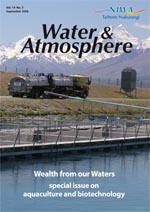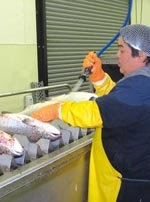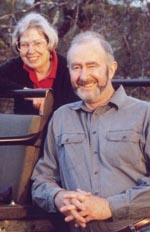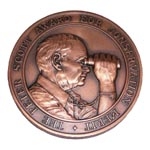PDF of this article (120 KB)


Processing salmon at Klemtu. (Photo: Andrew Forsythe)
First Nations
When Andrew Forsythe joined NIWA as Regional Manager for Aquaculture, he brought with him direct experience of a successful indigenous aquaculture venture in Canada, and he saw how the same business model could work for Northland Māori. In June, he and Charlotte Severne, NIWA’s General Manager for Māori Development, accompanied members of Te Runanga a Iwi o Ngāpuhi on a visit to British Columbia to examine Canadian aquaculture development. The arrangement between the Kitasoo/Xai’Xais Nation and Marine Harvest Canada meets the social, environmental, and economic aspirations of both parties.
The New Zealanders were graciously hosted by the Aboriginal Aquaculture Association, BC Centre for Aquatic Health Sciences, BC Salmon Farmers’ Association, Marine Harvest Canada, and the Kitasoo/Xai’Xais Nation. Good business was only the beginning: the hosts demonstrated the cultural, social, and political challenges and benefits associated with aquaculture development. The key take-home lessons were the tremendous potential of shared marketing strategies for aquaculture produced by indigenous peoples, and the establishment of cultural ties between indigenous groups with a common interest in aquaculture development.
The Kitasoo/Xai’xais Nation comprises about 460 people living in Klemtu, a small village on Swindle Island, situated on British Columbia’s spectacular central coast. Innovative thinking and determination on the part of the Elders have overcome small size and a remote location to bring employment and pride to the people. That same spirit flourishes in the peoples of Aotearoa.
For further information, contact: Andrew Forsythe, 0-9-432 5521, [email protected] Dr Charlotte Severne, 0-4-386-0511, [email protected] Learn more about Kitasoo/Xai’xais aquaculture at www.kitasoo.org
International conservation award for Rod East

Rod and his wife Chris at Ndzalama Wildlife Reserve in South Africa.

Shortly before his untimely death from cancer, NIWA’s former Deputy Chief Executive, Dr Rod East, received a prestigious international award for his outstanding contribution to conservation. In June he was presented with the Sir Peter Scott Award for Conservation Merit by Dr Holly Dublin, chair of the Species Survival Commission (SSC) of the World Conservation Union (IUCN).
The SSC is an exceptional network of experts who volunteer their time to advise on species conservation issues through more than a hundred Specialist Groups and Task Forces. The Sir Peter Scott Award for Conservation Merit is the SSC’s highest recognition, presented to key individuals for significant long-term service to the conservation of wild fauna and flora, especially threatened species. It has been given to only 15 people in the last 32 years.
Rod was honoured for his contribution to the conservation of African antelope. He was a long-standing member and co-chair of the SSC’s Antelope Specialist Group (ASG); he compiled and published key data on all African antelope species; and he raised funds to protect threatened African antelopes.
A lifelong interest in African wildlife led Rod on numerous trips to the continent. His magnum opus, the African Antelope Database 1998, made an enormous contribution to the conservation not only of antelopes, but of large African mammals in general.
These accomplishments were all in addition to a busy career in New Zealand, initially as a scientist and manager with MAF, and latterly as a manager and director at NIWA. He joined NIWA at its inception in 1992, becoming Director of Operations in 1994, and Deputy Chief Executive (Operations) in 1999; he retired in 2002. During his decade at NIWA, Rod helped forge one of the most successful of New Zealand’s Crown Research Institutes.
When Rod received his award, Richard Estes, editor of the ASG Gnusletter, wrote, ‘Rod East is living proof that when you go looking for someone to perform a challenging public service, you go to the busiest people you know. They’re the ones most likely to produce results.’
You can read more about Rod’s award and his contributions to wildlife conservation in Gnusletter 25(1) at http://cmsdata.iucn.org/downloads/gnusletter_vol_251.pdf
